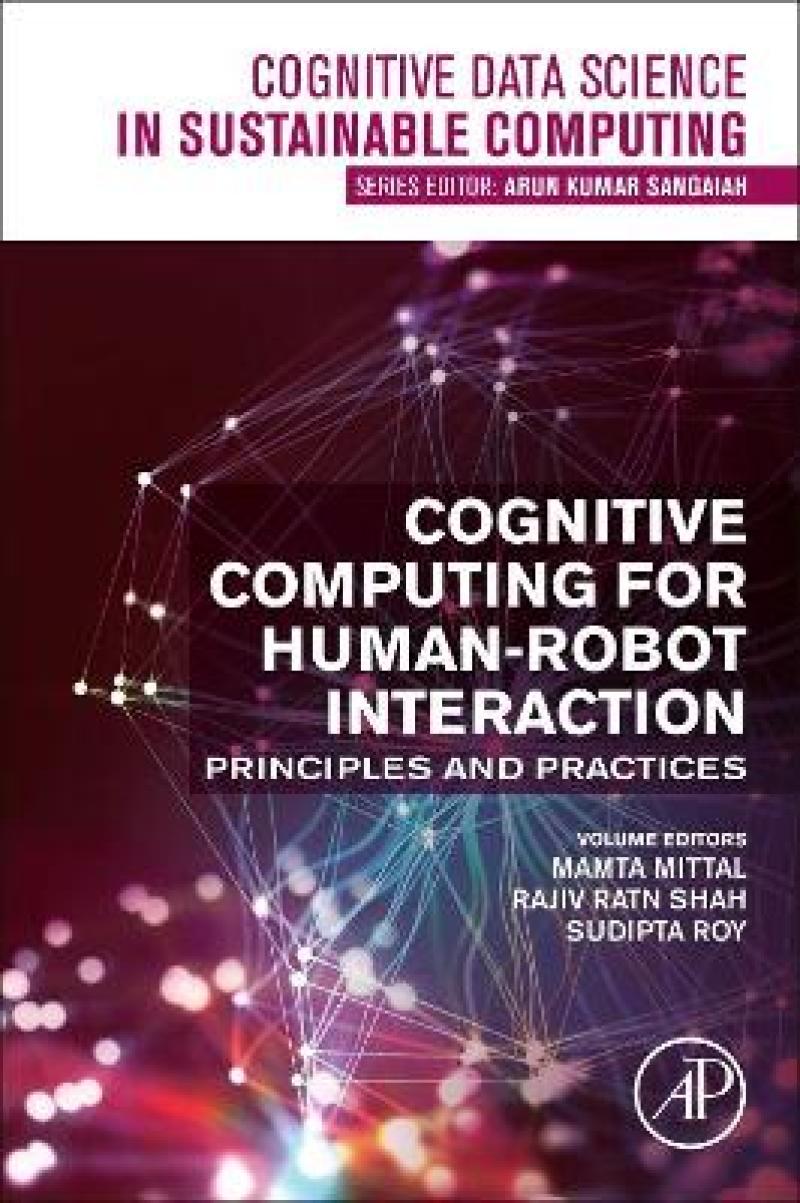Cognitive Computing for Human-Robot Interaction: Principles and Practices explores the efforts that should ultimately enable society to take advantage of the often-heralded potential of robots to provide economical and sustainable computing applications.
This book discusses each of these applications, presents working implementations, and combines coherent and original deliberative architecture for human–robot interactions (HRI). Supported by experimental results, it shows how explicit knowledge management promises to be instrumental in building richer and more natural HRI, by pushing for pervasive, human-level semantics within the robot's deliberative system for sustainable computing applications.
This book will be of special interest to academics, postgraduate students, and researchers working in the area of artificial intelligence and machine learning.
Key features:
Introduces several new contributions to the representation and management of humans in autonomous robotic systems;
Explores the potential of cognitive computing, robots, and HRI to generate a deeper understanding and to provide a better contribution from robots to society;
Engages with the potential repercussions of cognitive computing and HRI in the real world.
Les mer
1. Introduction to cognitive computing and its various applications
Sushila Palwe and Anita Gunjal
2. Recent trends towards cognitive science: from robots to humanized robots
Katiyar Sarthak and Katiyar Kalpana
3. Cognitive compyuting in human activity recognition by healthcare robots
S. Ravi Shankar, Gopi Battineni, and Mamta Mittal
4. Deep learning-based cognitive state prediction analysis using brain wave signals
D. Devi, S. Sophia, and S.R. Boselin Pabhu
5. EEG-based cognitive performance evaluations for mental arithmetic tasks
Debatri Chatterjee, Rahul Gavas, Roopkatha Samanta, and Sanjoy Kumar Saha
6. Trust or no trust in chat-bots: a millennial dilemma
Shivani Agarwal
7. Cognitive computing in autonomous vehicles
Atharva Sandeep Vidwans
8. Optimized navigation using deep learning techniques for automatic guided vehicles
Anubha Parashar, Apoorva Parashar, and Lalit Mohan Goyal
9. Vehicular middleware and heuristic approaches for ITS systems of smart cities
Rajender Kumar, Ravinder Khanna, and Surender Kumar
10. Error traceability and error prediction using machine learning techniques to improve the quality of vehicle modeling in computer-aided engineering
A. Anny Leema, Krishna Sai Narayana, and Subramani Sellaman
11. All about human-robot interaction
Kiran Jot Singh, Divneet Singh Kapoor, and Balwinder Singh Sohi
12. Teleportation of human body kinematicss for a tangible humanoid robot control
Tutan Nama and Suman Deb
13. Recognition of trivial humanoid group events using clustering and higher order local auto-correlation techniques
K. Seemanthini and S.S. Manjunath
14. Understanding the hand gesture command to visual attention model for mobile robot navigation: service robots in the domestic environment
E.D.G. Sanjeewa, K.K.L. Herath, B.G.D.A. Madhusanka, H.D.N.S. Priyankara, and H.M.K.K.M.B. Herath
15. Mobile robots for air quality monitoring of landfill sites using the Internet of Things
Rajesh Singh, Anita Gehlot, Shaik Vaseem Akram, Prabin Kumar Das, and Sushabhan Choudhury
16. Artificial intelligence and Internet of Things readiness: the inclination for hotels to support a sustainable envoronment
Mudita Sinha, Leena N. Fukey, Ashutosh Sinha
17. Design and fabrication of a new multi-function smart trash bin based on the Internet of Things
Bo Sun, Quanjin Ma, Hao Yao, Zidong Yang, Da Peng, and M.R.M.Rejab
Les mer
Characterizes the challenges and decisional issues that need to be addressed for a cognitive robot to share space and tasks with humans
Introduces several new contributions to the representation and management of humans in an autonomous robotic system
Explores cognitive computing, robots and HRI, presenting a more in-depth understanding to make robots better for society
Gives a challenging approach to those several repercussions of cognitive computing and HRI in the actual global scenario
Les mer
Produktdetaljer
ISBN
9780323857697
Publisert
2021-08-18
Utgiver
Elsevier Science & Technology
Vekt
680 gr
Høyde
229 mm
Bredde
152 mm
Aldersnivå
P, 06
Språk
Product language
Engelsk
Format
Product format
Heftet
Antall sider
418
